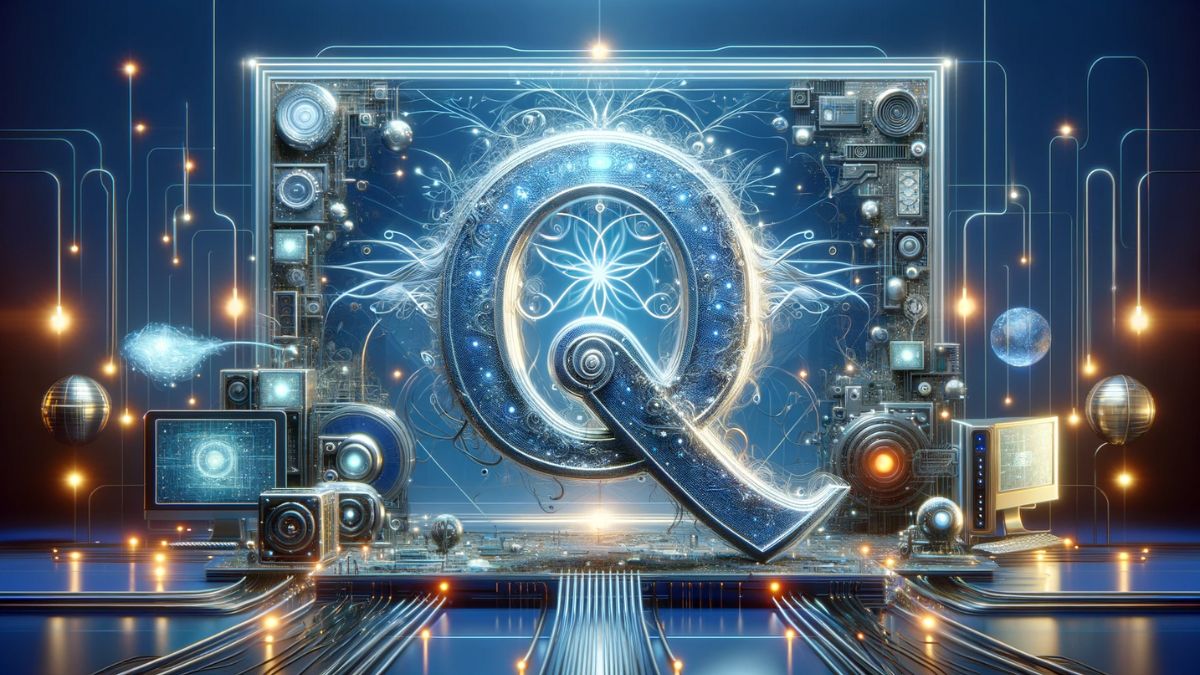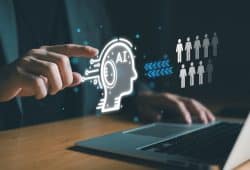 The Q Star project or Q* is a development by the company OpenAI that would have led to the departure of Sam Altman as CEO of this artificial intelligence company.
The Q Star project or Q* is a development by the company OpenAI that would have led to the departure of Sam Altman as CEO of this artificial intelligence company.
According to information published by Reuters news agency, the Q Star project represents a significant advance in Artificial General Intelligence (AGI) .
This is the story and what we know so far about this enigmatic Q Star project that would have caused a schism in Open AI.
The mysterious letter
A letter and an AI algorithm were key developments before the OpenAI board ousted Sam Altman, the child prodigy of generative AI, two sources told Reuters.
Regarding this letter, the agency noted that several researchers wrote a letter to the OpenAI board of directors, warning of “a powerful discovery in artificial intelligence that, they said, could threaten humanity.”
In this letter “the researchers highlighted the skill of AI and its potential danger, said the sources without specifying the exact security problems mentioned in the letter. There has been a long discussion among computer scientists about the danger posed by highly intelligent machines, for example, if they could decide that the destruction of humanity is in their interest.”
Sam Altman played a crucial role in the development of ChatGPT, making it one of the fastest-growing software applications in history. He also managed to attract significant investments and computing resources from Microsoft, bringing OpenAI closer to Artificial General Intelligence. Apparently, his intervention at a summit of world leaders in San Francisco, where he highlighted that major advances in the field of AI are coming, would have alerted about his intentions regarding Q*.
What is the Q Star Project?
The project referred to in this letter is Q Star, which refers to a development of Artificial General Intelligence (AGI) in which, unlike current applications that focus on writing and translating languages, Q* could reproduce mathematical thinking, a skill considered exclusive to human intelligence.
In mathematics, there is only one correct answer, so Q Star would imply that AI would have greater reasoning capabilities, similar to human intelligence. “This could be applied, for example, to novel scientific research. (…) Unlike a calculator that can solve a limited number of operations, GAI can generalize, learn, and understand.”
This ability of AI to perform mathematical calculations and its potential impact on humanity is what has led to questioning the ethical and security implications of such advances. That is, it raises the dilemma of whether an algorithm can think or rather, whether it should have that capability.
The scientific community has long been debating the risks that highly intelligent machines could pose.
There is fear that these machines could make decisions harmful to humanity. In response to these concerns, OpenAI formed a team of “AI scientists”, combining the previous teams of “Code Gen” and “Math Gen”. This group focuses on optimizing existing AI models to improve their reasoning and, eventually, perform advanced scientific work.
Chronology of Sam Altman’s Departure
Very little is known about OpenAI’s Q Star project and, in general, about Sam Altman’s departure from OpenAI. What has been constant since the company’s decision was made public is the version about the concern of several researchers about the advance of artificial intelligence and its implications for humanity.
The New York Times reported that before his departure, Altman had proposed the departure of Helen Toner, another member of the OpenAI board, due to an academic paper she published on the challenges the public faces in trying to understand the intentions of countries and companies that develop AI.
Altman did not achieve his goal as he was dismissed. However, Toner and other board members left their positions following his reinstatement.
Here is a timeline of the events:
- Thursday, November 16: Ilya Sutskever, co-founder of OpenAI, plans the dismissal of Sam Altman, proposing Mira Murati as interim CEO.
- Friday, November 17: The OpenAI board of directors dismisses Altman in a video call, with Greg Brockman, president of OpenAI, initially absent. Following the dismissal, Brockman resigns in solidarity. Microsoft learns of the dismissal and expresses surprise and discontent.
- Saturday, November 18: Altman negotiates with Microsoft to create a new AI company. The OpenAI board considers the possibility of reinstating Altman after pressure from Microsoft and other investors.
- Sunday, November 19: Efforts to reincorporate Altman and Brockman are suspended. Altman will not return as CEO of OpenAI, and Emmett Shear, co-founder of Twitch, is named the new interim CEO.
- Monday, November 20: The confirmation that Altman will not return as CEO leads to a mass exodus from OpenAI. Microsoft announces the hiring of Altman and Brockman to lead a new AI research team.
- Wednesday, November 22: Sam Altman is again named CEO of OpenAI. Also joining the board of directors are Bret Taylor, former co-CEO of Salesforce; Larry Summers, former U.S. Treasury Secretary, and Adam D’Angelo, CEO of Quora
What is General Artificial Intelligence?
General Artificial Intelligence (GAI), often referred to as Strong AI or Artificial General Intelligence (AGI), is a form of artificial intelligence that is capable of understanding, learning, and applying its intelligence to a wide variety of problems, similar to the way a human being can. Unlike Narrow AI or Weak AI, which is designed to perform specific tasks (like image recognition or playing chess), GAI has a broader, more generalized cognitive ability.
Key characteristics of General Artificial Intelligence include:
- Adaptability: GAI can learn and adapt to new tasks and environments that it wasn’t specifically programmed for. It can transfer knowledge from one domain to another, learning from experience.
- Understanding and Reasoning: Unlike Narrow AI that follows predefined patterns or rules, GAI can comprehend context, make judgments, and reason through problems, even those it hasn’t encountered before.
- Autonomous Learning: It can independently acquire and integrate new knowledge, rather than being limited to what it has been explicitly programmed to know.
- Generalization: The ability to apply learned knowledge and skills to a wide range of different tasks and domains.
The development of General Artificial Intelligence represents a significant leap from current AI technology, and it is a subject of extensive research and debate in the AI community.
There are ethical, philosophical, and technical challenges involved in creating GAI, and opinions vary on how close we are to achieving it, or even if it’s possible at all. The implications of creating an intelligence that can match or surpass human cognitive abilities are profound and far-reaching, raising questions about everything from job displacement to existential risks for humanity.











